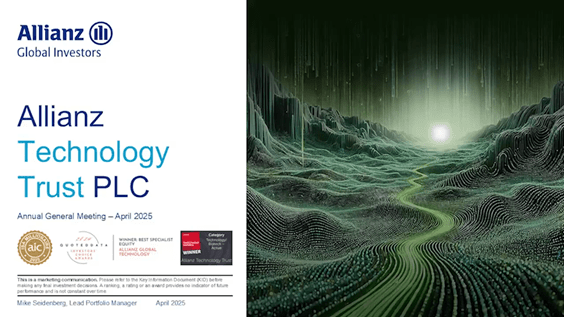Insights from Silicon Valley
To chip or not to chip

Summary
This update from Silicon Valley looks at the push and pull between those companies making their own chips and those buying external chips. The implications of China’s and other nations’ regulatory crackdowns on some of the largest tech firms are also discussed.
Google is rumoured to be putting plans in place use its own chips in Chromebooks and tablets from 2023. It is part of its ambition to manufacture high end phones – a rival to Samsung in the US market. Its hope is that its own chips may give it real differentiation and cut costs.
Google is not alone. Amazon, Microsoft and Tesla also have significant chip design efforts. Many of these companies look askance at the margins for the semiconductor groups and are asking whether bringing chip manufacturing in-house could they improve their cost base.
Apple has been the most consistently successful at using its own chips. It started 15 years ago with chips for the iPhone, and has now put its own chips into Apple laptops this year. Equally, Tesla can claim to have built some proprietary edge through its chip manufacturing – building machine learning and vision processing into its chips.
There has always been a push and pull between those companies making their own chips and those buying external chips. There used to be more companies making their own chips, but new iterations and functionality from third-party chip makers, plus engineer familiarity with third-party chips, meant many switched over time. It appears that the trend is now moving the other way, with potential implications for both sides.
The problem for Google (and parent company Alphabet) is that its early forays into chip-making haven’t been very successful. The group has already made a chip for machine learning in its data centres, but it still appears to be buying a lot of chips from Nvidia. Whether it can deliver cost savings or product differentiation through its own chips remains to be seen.
China’s crackdown: a threat to its internet giants?
It is a perennial question for active technology investors: what could derail the ‘Fab 10’ – the 10 largest companies that continue to set the pace on technology returns. From a risk management point of view, active managers can’t reasonably put 50-60% of their portfolio into a handful of stocks, but the dominance of these giants can make it difficult to outperform the market.
Many of these companies are considered as sound investments: they generate cash, they buy back stock, they have an awareness of their environmental and social responsibility (in notable contrast to monopolistic companies of the past). The same is true for many of the Chinese Internet companies. However, there are increasing challenges. If the law changes to protect companies, societies or competitors, these companies will have difficulty in protecting their profits. In the US to date, the law has been clear that if the consumer benefits, companies can stomp on their competitors. However, we see a change of thinking in the US, in China and in the EU.
For example, we’ve seen billions of Euros in fines for some of these giant companies from EU regulators because they don’t believe they are benefiting society. In their view, small businesses are good and driving them out of business is not. They are also not comfortable with the way consumer privacy has been manipulated. They have dealt with it through the law courts and ever-higher fines.
A similar phenomenon is happening in China as policymakers look more closely at the benefit for society, rather than the benefit to investors. It appears they no longer want to let gaming, education or internet companies do as they please. China does not want a generation of young people that sit on computer games all day, but would rather they were out in the world, building and designing. This change of attitude from policymakers across the globe represents the biggest threat to the global internet giants today.
The advertising recovery
Advertising is often one of the first sectors to benefit from a recovery. However, this time round the recovery is more nuanced. We’ve seen a lot of trends pulled forward during the pandemic, ecommerce among them. However, in many cases, ecommerce statistics have started to show disappointing growth, particularly in the US and China. It’s still growing faster than conventional retail sales but the pace has notably slowed. Consumers appear to be adopting a hybrid model, such as shopping online and picking it up instore.
As a result, advertising for pure ecommerce is also slowing down. The beneficiary is likely to be Over The Top TV - media services offered directly to viewers via the Internet, bypassing the usual ‘controllers’ of media content such as cable, broadcast, and satellite television platforms. Advertising in this area is very targeted: the providers have data on individuals’ browsing history and interests, meaning ads are delivered with precision. This is likely to have more appeal in a slowing market.
Cybersecurity
In July this year, President Biden announced a new ransomware taskforce. It is a sign that governments are finally paying attention to the vast and growing problem of cybersecurity, having been woefully slow to act to date.
Companies are also starting to pay attention. With the move to the cloud, there is more sensitive data flowing across the internet. Increasingly, they realise that they need to pay the ‘security tax’ to ensure their data is secure.
For some time, companies have relied on ‘checking the box’. It is clear that this is inadequate. If 70-80% of attacks haven’t been seen before, what is the point of having company-wide blacklists, for example? We believe efficacy requirements may become a necessity to do business: companies will need to demonstrate that they have hired an independent consultancy to attack them using the latest techniques and their systems have been found to be robust.
Increasingly, companies are using multiple vendors within one organisation, recognising that having just one cybersecurity supplier is a key risk. Equally, they realise that security needs to be multi-layered. This is a great environment for security companies that have solutions to these problems.
Investing involves risk. The value of an investment and the income from it may fall as well as rise and investors may not get back the full amount invested. Competition among technology companies may result in aggressive pricing of their products and services, which may affect the profitability of the companies in which the Trust invests. In addition, because of the rapid pace of technological development, products or services developed by these companies may become rapidly obsolete or have relatively short product cycles. This may have the effect of making the Trust’s returns more volatile than the returns of a fund that does not invest in similarly related companies. Past performance is not a reliable indicator of future results. The views and opinions expressed herein, which are subject to change without notice, are those of the issuer and/or its affiliated companies at the time of publication. The data used is derived from various sources, and assumed to be correct and reliable at the time of publication. A security mentioned as example above will not necessarily be comprised in the portfolio by the time this document is disclosed or at any other subsequent date. The Management Company may decide to terminate the arrangements made for the marketing of its collective investment undertakings in accordance with applicable de-notification regulation. This is a marketing communication issued by Allianz Global Investors GmbH, an investment company with limited liability incorporated in Germany, with its registered office at Bockenheimer Landstrasse 42/44, D-60323 Frankfurt/M. Allianz Global Investors GmbH is registered with the local court of Frankfurt/M under HRB 9340 and is authorised and regulated by the Bundesanstalt für Finanzdienstleistungsaufsicht (www.bafin.de). Further information on Investor Rights are available here (www.regulatory. allianzgi.com). Allianz Global Investors GmbH has established a branch in the United Kingdom, Allianz Global Investors GmbH, UK branch, 199 Bishopsgate, London EC2M 3TY, www.allianzglobalinvestors. co.uk, deemed authorised and regulated by the Financial Conduct Authority. Details of the Temporary Permissions Regime, which allows EEA-based firms to operate in the UK for a limited period while seeking full authorisation, are available on the Financial Conduct Authority’s website (www.fca.org.uk). Details about the extent of our regulation by the Financial Conduct Authority are available from us on request. Allianz Technology Trust PLC is incorporated in England and Wales. (Company registration no. 3117355). Registered Office: 199 Bishopsgate, London, EC2M 3TY.
AdMaster: 1913542
Silicon Valley Byte Size - The Allianz Technology Trust Podcast
The Social Dilemma – Withstanding Regulation








